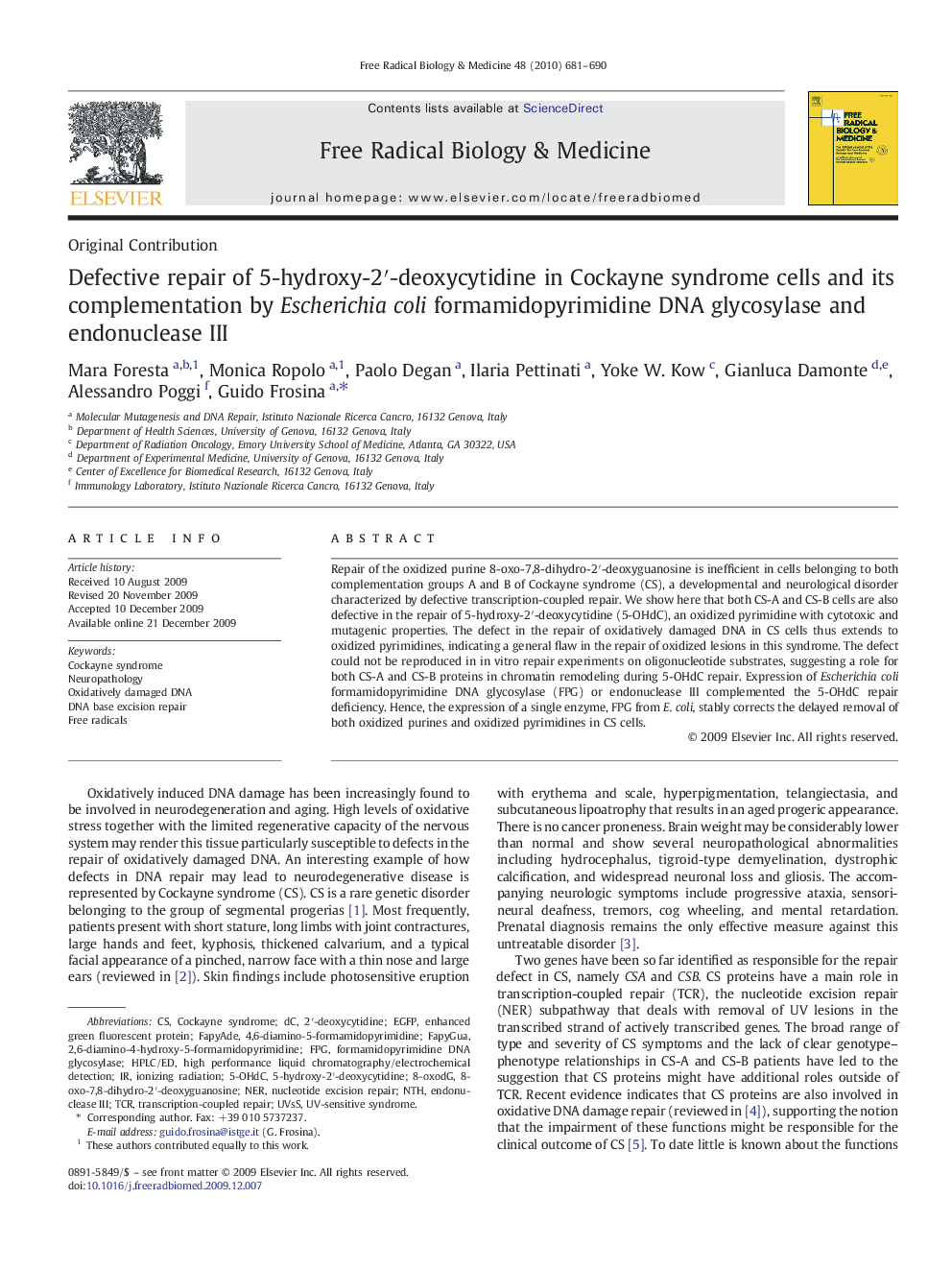| Article ID | Journal | Published Year | Pages | File Type |
|---|---|---|---|---|
| 1910010 | Free Radical Biology and Medicine | 2010 | 10 Pages |
Repair of the oxidized purine 8-oxo-7,8-dihydro-2′-deoxyguanosine is inefficient in cells belonging to both complementation groups A and B of Cockayne syndrome (CS), a developmental and neurological disorder characterized by defective transcription-coupled repair. We show here that both CS-A and CS-B cells are also defective in the repair of 5-hydroxy-2′-deoxycytidine (5-OHdC), an oxidized pyrimidine with cytotoxic and mutagenic properties. The defect in the repair of oxidatively damaged DNA in CS cells thus extends to oxidized pyrimidines, indicating a general flaw in the repair of oxidized lesions in this syndrome. The defect could not be reproduced in in vitro repair experiments on oligonucleotide substrates, suggesting a role for both CS-A and CS-B proteins in chromatin remodeling during 5-OHdC repair. Expression of Escherichia coli formamidopyrimidine DNA glycosylase (FPG) or endonuclease III complemented the 5-OHdC repair deficiency. Hence, the expression of a single enzyme, FPG from E. coli, stably corrects the delayed removal of both oxidized purines and oxidized pyrimidines in CS cells.
